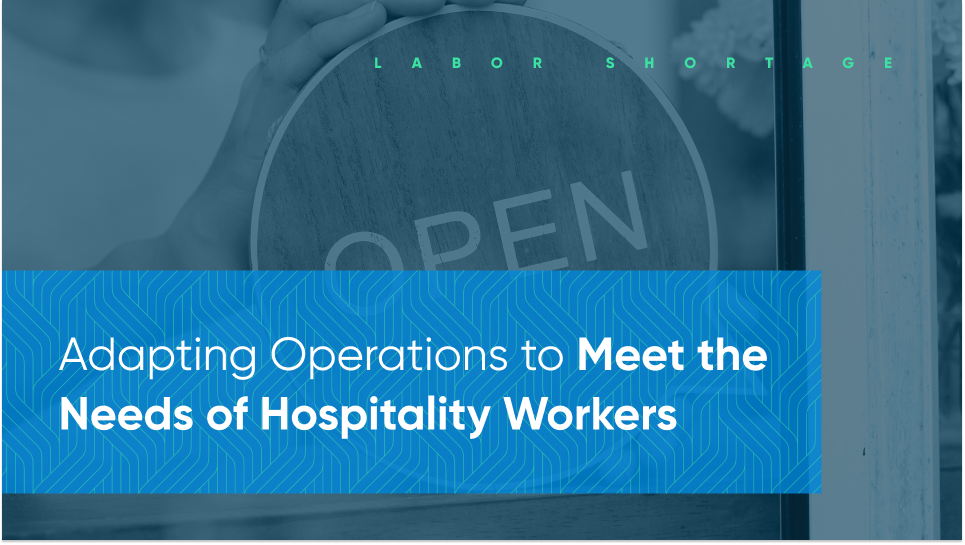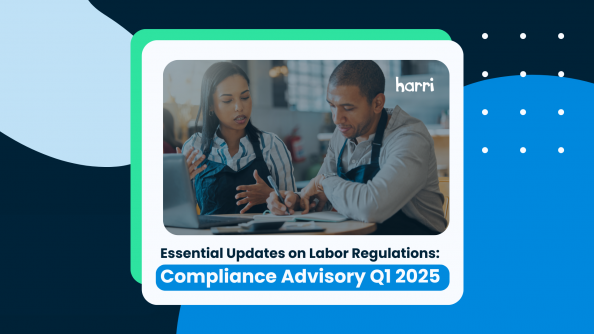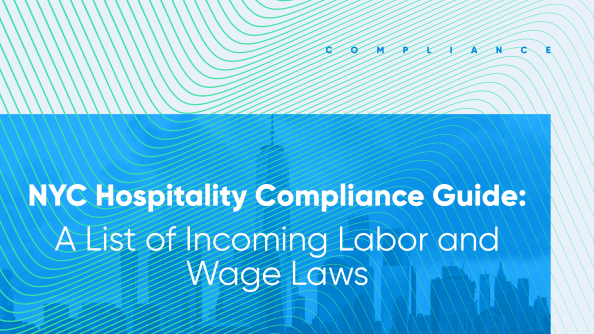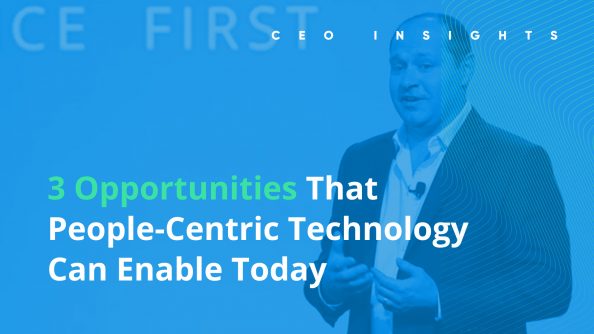Adapting Operations to Meet the Needs of Hospitality Workers

- By Harri Insider Team | September 22, 2021
Across the United States, a growing number of hospitality workers are making efforts to unionize. Experiences working through COVID-19 have been particularly hard on these workers with a particular focus on scheduling and shift quality.
In areas like NYC and Chicago where Fair Workweek laws are in effect, employees often rally against non-compliance related to scheduling hazard pay.
In fact, “having a reliable, predictable schedule” was listed as a top priority for frontline hospitality workers, according to our 2021 Hospitality Employee Experience Report.
Why is that so important? Because the schedule plays a direct role in your team’s financial and emotional wellness.
You might pay your staff great wages, but if their schedules are inconsistent, they’ll never be able to accurately predict the income they’re bringing in each week. This also affects the way they plan their personal life, child care, and even medical appointments.
This is the exact reason why Fair Workweek scheduling laws are gaining popularity across the country. This is also true for labor strikes and unionization as we see an increasing number of hourly employees organize to fight for better working conditions.
But whether your employees are seeking flexible scheduling, higher wages, or even better career growth opportunities in your brand, adapting operational processes is a necessary first step to ensure efficiency and success.
Adapting in a scarce labor climate
We know scheduling flexibility is not always easy, especially during a talent shortage. Labor is already tight and service demand is only getting higher as consumers adopt pre-pandemic-level dining expectations.
But the growing number of wage and labor strikes, held by frontline employees, means that operators are hard pressed to meet the needs of the hourly workforce.
Striking a balance between employee and customer demand is absolutely critical, and technology is the best way to satisfy both needs while also minimizing operational disruption.
Let’s see how technology can be used as a strategic partner to help hospitality operators adapt to a changing labor climate.
Be aware of applicable wage and labor laws
While complying with employee-first scheduling laws can be a huge operational challenge, these laws generally are put in place to create a better employee experience. As such, complying with these laws naturally lends itself to higher retention.
Failing to follow wage and labor laws doesn’t just open you up to legal liability, it also builds a solid foundation for dissatisfied employees to retaliate against your brand.
For this reason, hospitality operators have found that educating frontline employees on their rights decreases the likelihood of negative outcomes. Transparency is a necessity in the workplace, and keeping employees out of the dark encourages them to be more amenable if a slip-up does occur.
But understanding the complex wage and labor laws applicable to your business, let alone following them, is tricky work.
What most brands don’t know is that the right HCM tools can provide invaluable guidance on wage and labor laws.
Our end-to-end employee experience platform, for example, factors in compliance at the state and local levels. So whether you need to build Fair Workweek-compliant schedules or must follow employment protections under the “Just Cause” law, Harri provides guidance in the form of compliant notifications, non-compliance warnings, and compliance audits.
Finding the right tools to understand which wage and labor laws are most important to your hourly workers is key, but that’s only half the battle. Operators must be able to execute flexible, consistent schedules that fit the needs of their team.
At Harri, we like to say that knowledge is power. Our intelligent scheduling platform bakes compliance right into the schedule builder alongside demand forecasting and employee analytics tools.
So not only are managers empowered to create compliant schedules on-the-fly, they’re also able to identify the most cost-efficient schedules based on predicted customer demand, historic sales data, employee availability, employee shift preferences, employee skills, break requirements, and other factors pertinent to the guest (and employee!) experience.
No more stressing if your managers remembered the new scheduling ordinance that went into effect last week. No more worrying if schedules are making the best use of your available labor. No more worrying if your teams are receiving the correct number of paid and unpaid breaks.
With a carefree compliance tool, hospitality operators are empowered to skillfully adapt operations in a way that meets everyone’s needs.
Optimize, optimize, optimize
No matter how prepared you are, adapting operations to fit your team’s needs is a challenge that’s always on the move. Factors most pertinent to an employee’s satisfaction change with seasonality, as their job responsibilities change, and as the industry adapts.
The right employee experience platform will consolidate data from every aspect of human capital management, ranging from hiring and training to scheduling and payroll, to ensure operators are in the best position to optimize processes on-the-fly.
Our customizable data analytics platform connects the dots between employee satisfaction and clock-in times, scheduled hours, specific shifts worked, customer sales per week, and more. Understand what factors are most important to a new hire’s retention, or identify which stages of the application process candidates are most likely to drop off.
Immediate access to powerful data is a must-have when looking to optimize people processes and identify gaps in your systems.
As the needs of the hourly workforce change, so do an operator’s responsibilities to meet those needs. Utilizing an all-in-one employee experience platform is the best way to ensure everything is covered from the basics of employee workforce needs to the nuanced complexities of labor law compliance.
Learn how an end-to-end platform like Harri empowers hospitality brands to adapt without disrupting day-to-day operations.




















